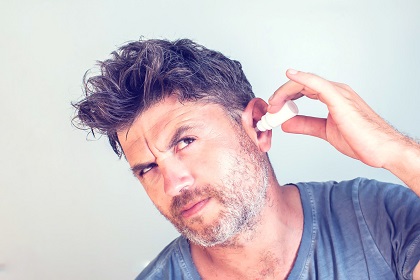Search
When the middle section of the ear gets infected, it causes an ear infection just behind the eardrum, known as acute otitis media. This is a common problem in children. Middle ear infections often occur after a common cold, the flu, or nose and throat infection.
When you or your child has a middle ear infection, swelling occurs and fluid forms just behind the eardrum. This may cause you pain, fever, drainage from your ear, and sometimes difficulty in hearing. Middle ear infections keeps usually clear up without long-term effects/problems.
What medicines will my doctor give me?
Depending on your age and severity of the infection, your doctor will decide if you need antibiotics. It is important that you complete the course of antibiotics as instructed.
Your doctor may also give you medications to relieve your pain and reduce your fever.
What can I do at home to feel better?
DOs
• Keep your ears dry
DON'Ts
• Do not use cotton swabs to scratch or poke your ears
• Avoid blowing your nose forcefully
• Avoid activities that will worsen your symptoms such as diving or swimming
When can I return to work? When can my child return to school?
You can resume your normal activities once the pain and fever have subsided.
How do I prevent middle ear infection?
Reduce your exposure to the common cold or upper respiratory infections. Keep up-to-date with pneumococcal and influenza vaccinations. Stay in a smoke-free environment whenever possible. Your doctor may decide to give you a low dose of antibiotics if your middle ear infections keeps occurring 3 or more infections in 6 months.
When should I see my doctor again?
Please contact your doctor if you have:
• No improvement within 24 to 48 hours
• Worsening of pain or fever
• Increase in ear drainage
• Increased difficulty in hearing. For children – lesser response to surrounding noise
• For children – decreased activity or lack of appetite
We recommend children who are younger than 2 years old or at the age where they are learning to speak have a follow-up ear exam 2 to 3 months after being treated. This follow-up exam reduces the risk of your child delaying his/her speech development. If necessary, your doctor may refer you or your child to see an Ear, Nose and Throat (ENT) specialist.
With reference to www.uptodate.com
Click the link for more information on E.N.T Clinical Service
Click the link for more information on Pediatrics Clinical Service
Click the link for more information on Family Medicine Clinical Service









